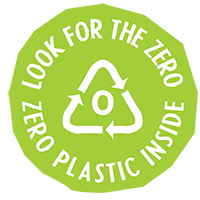Anti-microbead norms
Attempts to stop cosmetic products altered with plastics, have been increasing in the last years. In 2018 a UK-wide ban of microbeads in self-care items came into effect. Companies like Unilever already took the beads off their products in 2014. However, the ban does only apply to a restricted list of products. Items like lipsticks or sunscreens are excluded.
China, the world’s second largest cosmetic market, announced to prohibit the production of microbeads-containing cosmetics by the end of 2020. Sale of remaining stock can be continued until 31 December of 2022. Damin Tang, activist for Greenpeace, calls the ban "a decisive step", influencing at once international brands selling to China. Producing 1.2 million tons of cosmetic products every year, China’s ban is going to have a significant impact on a worldwide level. However, Mr. Tang points out, that microbeads are not only applied in cosmetics, but also in products like medicines.
Worldwide, only a few countries have imposed a ban on microbeads in cosmetics. Canada, Ireland, Sweden, France and the UK just to name a few. The European Union is planning on following with an overall approach regarding its member countries. However, countries that already took action against microbeads, all have their very own restrictions, applying to a limited list of products. Moreover, biodegradable microbeads mostly remain avoided by bans. Even if they do degrade, it takes some time, therefor causing harm to the environment.
The increasing focus put on this topic, has forced some companies in the cosmetic industry to act voluntarily. A few of the biggest personal care brands like L’Oréal, Beiersdorf, Procter & Gamble, Colgate-Palmolive and Johnson & Johnson have been adapting bans of microbeads in their own product lines.
Uncovering microbeads
Supposedly the majority of consumers is unaware of the fact that plastics is intentionally added to cosmetic products. If they would know, the majority probably would choose plastic-free alternatives.
For this purpose the campaign Beat the Microbead was born. Initiated by the Plastic Soup Foundation and sponsored by the United Nations Environment Programme, the initial idea was to raise awareness, educate people and track down plastic. By providing a simple tool, more exactly the Beat the Microbead app, people can get information about products containing microbeads. This way, consumers can make a conscious choice. The foundation engages with people as well with cosmetic brands and political institutions.

Zero Plastic Inside Logo I Beat the Microbead
Alternatively, if you want to check out a product without using a smartphone, have a look at the ingredient section.
The most common used plastic beads are:
polyethylene (PE), polymethyl methacrylate (PMMA), nylon, polyethylene terephthalate (PET) and polypropylene (PP).
You may also look for a Zero Plastic Inside logo on the packaging, a recycling sing containing a zero. The logo is carried by brands that don’t use any microbeads in their products.
Education & action
Microplastics, microbeads and nanoplastics: tiny particles with a massive impact. Toxic substances are rinsed down the drain, polluting nature, causing harm to animals and humans and little action is taken. In the last years plastic pollution has been increasingly gaining attention by the public, however there still is a big lack of knowledge on microbeads by consumers. Not only need we to be better informed and warned about ingredients used in products, the issue also needs to be adequately addressed by governments. Bans that came into effect regarding the cosmetic industry are incomplete and full of loopholes. Furthermore, targeting a single sector is not enough. Plastics beads are hidden in every kind of industry and it is time for a wholistic approach. Environmental norms have a huge power and it is time to apply them on a global scale.



